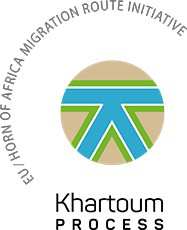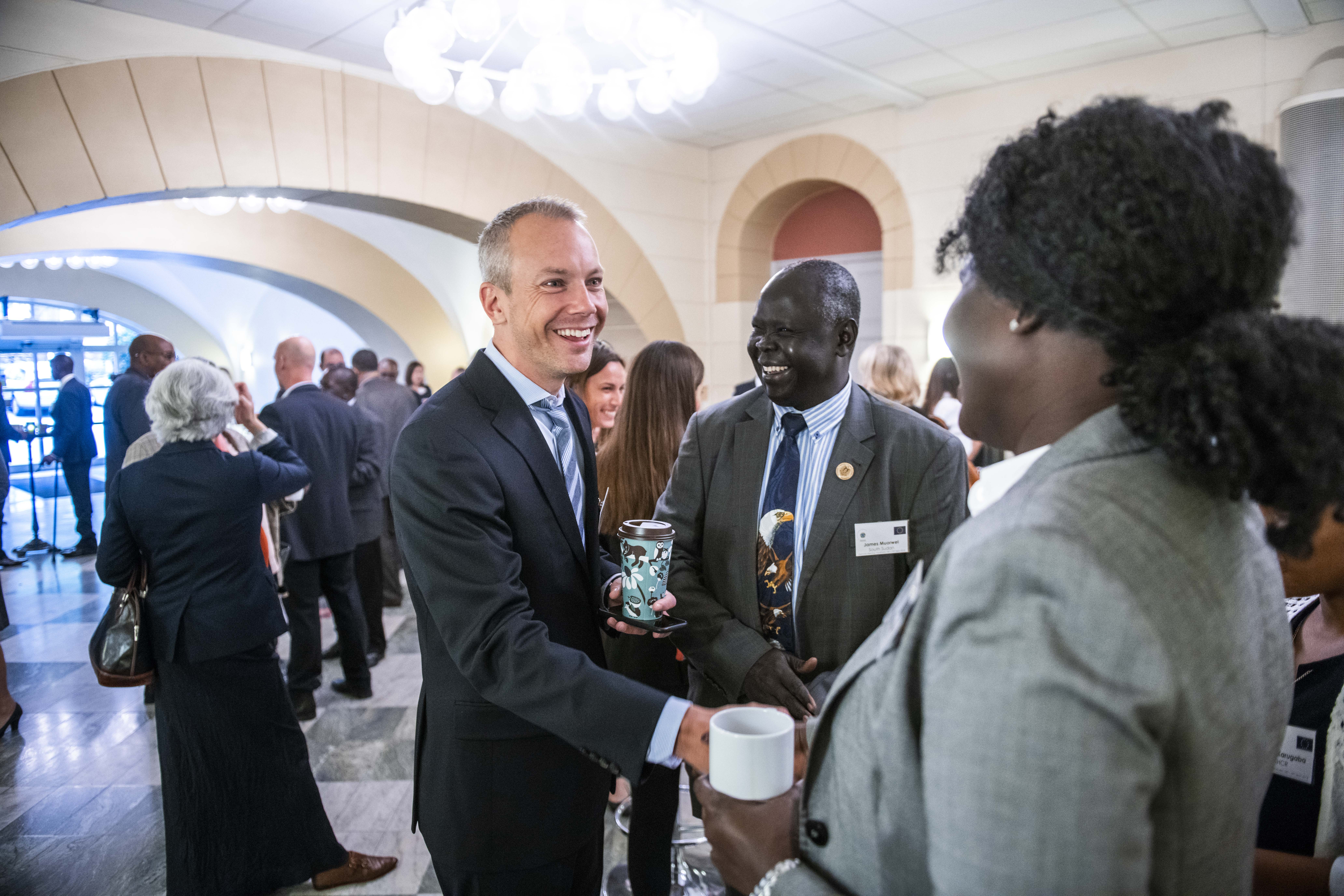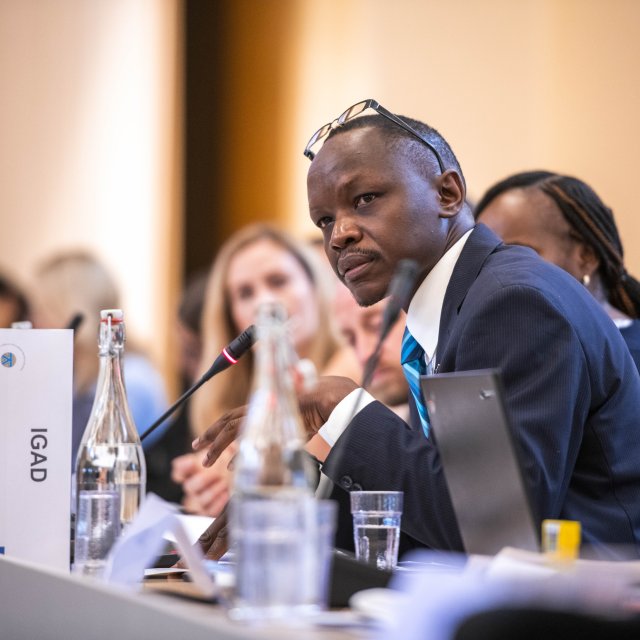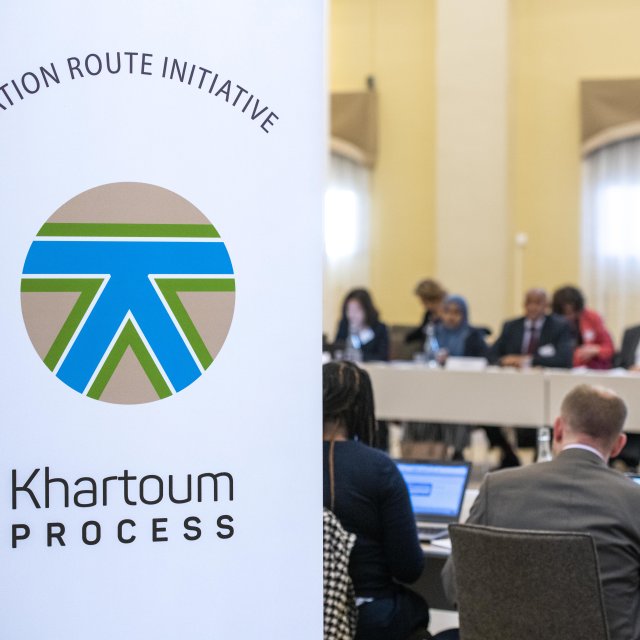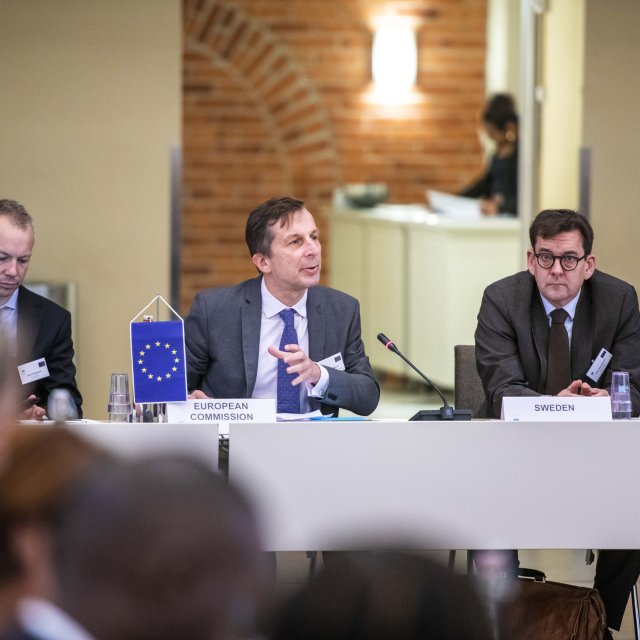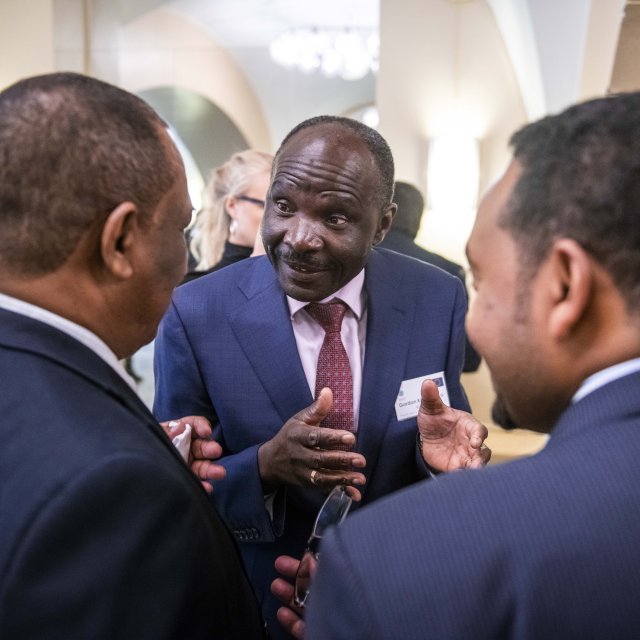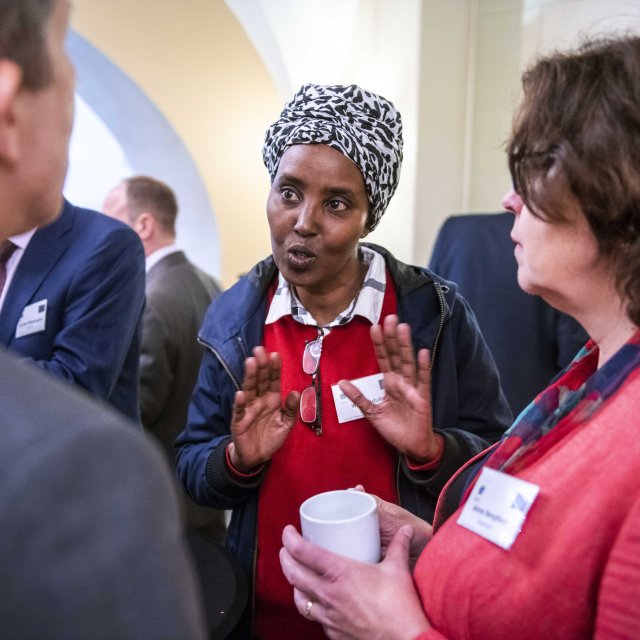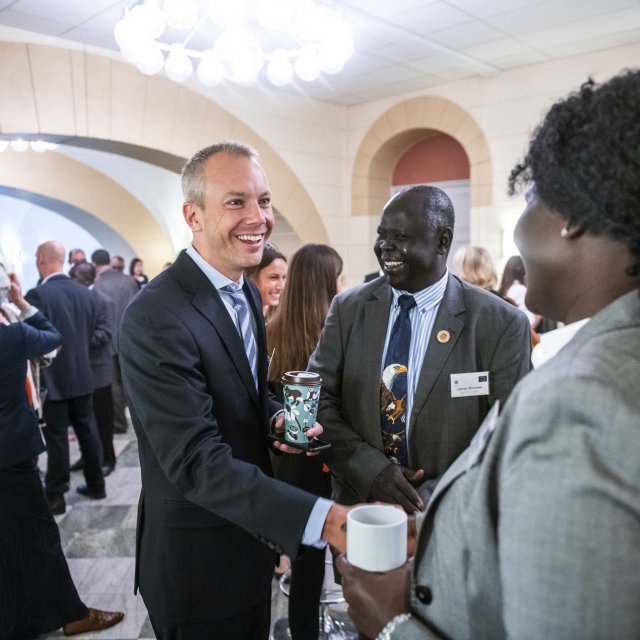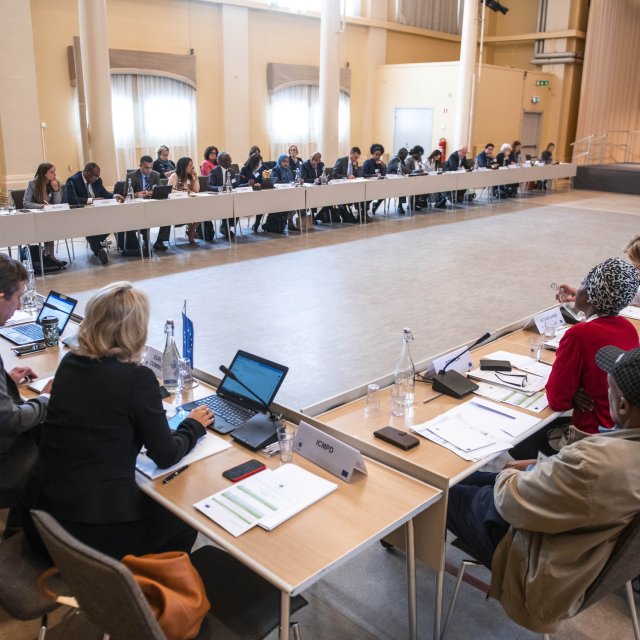Between 18-19 September 2018, Sweden, together with Kenya as co-host, hosted the Thematic Meeting on the Protection of Women and Girls on the Move from Africa to Europe.
The 2017 Thematic Meeting on International Protection and Asylum in Berlin, Germany, explored the issue of protection challenges of populations on the move, with the conclusions of the meeting highlighting the need for further concerted action to address the specific protection challenges faced by migrant and refugee women and girls. Earlier this year, at the Thematic Meeting on Awareness-Raising Campaigns in The Hague, The Netherlands, delegates examined how sharing information with refugees and migrants can help reduce risks and facilitate access to services.
The insights gained in Berlin and The Hague served as useful reference points from which to approach the upcoming Stockholm Thematic Meeting, wherein participating states were presented with the opportunity to establish a common understanding of the specific protection risks faced by women and girls on the move from Africa to Europe, and consider how best to respond to those risks within the inter-continental framework of the Khartoum Process.
The Stockholm Thematic Meeting provided a platform for state, EU, UN, academic and civil society expertise on protection and gender-based violence (GBV) within the context of mixed migratory flows from Africa to Europe. Particular attention was be paid to women and girls’ access to critical GBV response services during displacement and migration, and whether or not the existing protection infrastructure is adequate to ensure that minimum standards are met.
Among others, delegates highlighted the need to consider the further strengthening of government actors capacity to be more accessible and responsive to vulnerable migrant and refugee women, as well as generating and using behavioural research to address gender discrimination of women and girls on the move to inform communication, advocacy, behavioural change and cultural competency service provider training.
